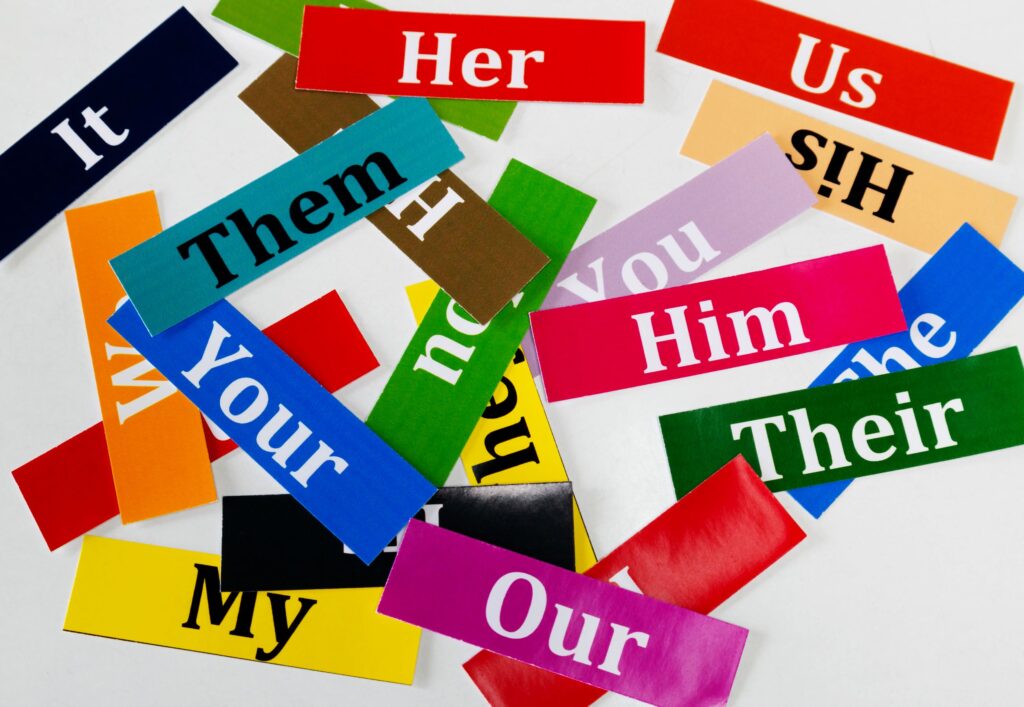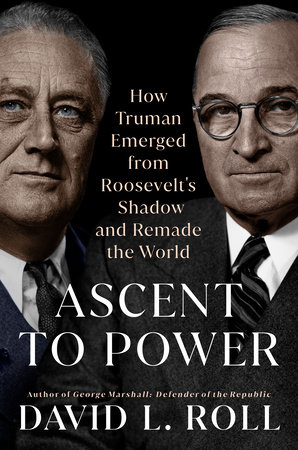Pronouns Are Ruining Our Lives
November 6, 2024

I, you, he, she, it, we, they, them, us, him, her, his, hers, its, theirs, ours, yours.
Strike them from your (this is hard already) vocabulary.
A radical suggestion, but it came to me with some urgency when I pieced together all the harm they do.
First, my Jewish husband said, “I support Israel’s right to go to war. I do not support the way they have done so.” This led to a lively discussion of Pearl Harbor, with Andrew pointing out that if a country has a right to retaliate to hostile aggressive acts, the Japanese were entirely justified. Which led to his weary reminder that humans tend toward hypocrisy, setting far different standards for themselves than for others. “How we appraise what happens to ‘us,’ what ‘we’ are entitled to, is entirely different than what is acceptable for ‘them,’” he said. “It all comes down to pronouns.”
I blinked, and a reel of examples unspooled behind my eyelids. Descendants of immigrants who vilify today’s immigrants. (It was fine for us to come, but now that we are here, they must be kept out.) Recipients of social security who vilify recipients of welfare and criticize “entitlements” even as they demand a cost-of-living increase. These days, “us” nearly always seems to stand in direct, fierce opposition to “them,” no matter who the antecedent of “them” happens to be.
And the problems with pronouns do not stop there. God knows, the male pronoun’s use as universal has colored our view of history and our notion of who and what God is. The assumptions beneath that universalization helped keep women out of political, academic, corporate, artistic and social power for centuries. They (and who do I really mean here? The assumptions or the men behind them?) even made it seem okay for medical research to ignore the female body. The universal male pronoun had every little girl grow up reading about a world in which she was not alluded to, represented, consulted.
Because our language has no universal singular pronoun, we reached back to Olde England’s plural “they” to resolve this tension, paining anyone who cares about grammatical agreement and introducing a little more mess into the syntax that ideally orders our thinking.
“Our” thinking? Surely I am not speaking for everyone. A much younger writer friend scolded me recently for using “we” presumptuously, and he was right. On the other hand, woke identity politics have done a good job erasing any sense of “we” at all, which is doing democracy no favors.
My friend also scolded me for not changing, via awkward fragments or inserted brackets, the sexist language in quotes from earlier decades. This rubbed me wrong. If we erase the old markers of patriarchy, we just might forget the damage it did. Besides, no quote benefits from being bowdlerized in such fashion. Historical figures deserve verbatim transcription. Safely dead, they can take whatever knocks we choose to dish out. It is the contemporary writers of whom we should demand respect.
As do people who are transgender, and who want the pronoun of their gender. Or those who are nonbinary and would cringe at the same pronoun. Yes, it can be confusing; one must ask. There has been too much shaming and cancellation, though; pronoun wars have taken casualties on all sides and left us afraid to speak of one another at all. I started that sentence in the passive voice, neatly avoiding any pronoun that would point to who I think has done the shaming and cancellation. Even the avoidance of pronouns can be problematic—witness all the bureaucratic idiocy and corporate doublespeak that are spewed to obscure accountability.
Just as obnoxious are the royal we and the editorial we, attempts to erase subjectivity that really only wiggle out of blame. But at least that usage keeps them human. A friend of mine, prone to vitriol, refers to anyone she loathes as “it,” a practice that chills me to the bone.
So, for a different reason, does the light, cute reference to an “it girl,” like an “it bag.” Have you ever heard someone called an “it man”? No, because the “it” objectifies. Something women have been trying to escape for how long? And here we are, cheerfully using the language ourselves, attaching to young females the word we use for our purses.
“It” is inhuman. “He” and “she” are distanced. She Who Must Be Obeyed is a droll bit of false homage, pretending respect while refusing to give the wife her name. She is held at arm’s length. Remember Dale Carnegie saying how much people love to hear their names pronounced? That pleasure will be withheld, in subtle revenge. The same with He Who Must Not Be Named, who can be stripped of power by a pronoun.
Ah, but we love our own pronoun. I once worked with a journalist so enamored of his own presence in each story that our smartass art director replaced every “I” with the guy’s byline photo and blew up the article to poster size. Even in writing first-person, one has to find workarounds to avoid too many I’s, just as one must at a cocktail party, lest people drift toward the dip.
For a while, we thought “I” was a transparent way to report even the news, instead of coyly writing “this reporter.” I agreed. But now the majority of U.S. Americans assume that bias riddles the mainstream media, and I (!) cannot help but wonder if reporters began to seem too personally involved, made themselves too much a part of the story. The old, implied objectivity was impossible, but a wholesale insertion of subjectivity was not the cure.
Still, “I” is preferable to “you” in any intimate fight. “You” starts sentences of accusation and blame. “I” shifts the emphasis to how the person feels, interprets, reacts—and that cannot be refuted. We only know our own minds, and it is our feelings we need to own and clarify, not anyone else’s.
Interviewing people about intense, difficult, emotional topics, I notice when they shift from “I” to “you”: they are trying to universalize how they felt, defend it and distance themselves from it. A macho guy reliving trauma says, “You start to get a little shaky,” not, “I got a little shaky.”
Pronouns reveal. Still, we need to abolish them. Substitute proper names, hold people accountable, own touchy opinions or embarrassing emotions, presume nothing. I dare you.
Read more by Jeannette Cooperman here.






